The Food2030 Networks Conference which took place in Brussels from 5-7 March 2024, offered a valuable opportunity to bring together actors of the food system value chain and policy makers, to foster the networking beyond projects. Across the various sessions over 3 days, critical issues and their potential solutions were discussed, providing valuable insights and an exploration of the challenges and opportunities inherent in transformative innovation within the agriculture and food system for stakeholders across the sector. Coming from FUSILLI, it was a great opportunity to meet both colleagues from FUSILLI and the sister projects and initiatives alike, reminding ourselves of our common goal.
The agenda was a colourful one. Three days filled with parallel sessions and breakout rooms concerning vertical themes such as policy and governance, stakeholder collaboration, data and digital tools, food supply chains, not to mention the whole of day 2 focused around the idea of providing a ‘Platform for Innovators’ and the last day providing the opportunity for ‘Dialogue with Policymakers’. In the audience were also players from across the food chain: farmers and food producers, entrepreneurs, businesses and investors, as well as relevant living labs and representatives from initiatives.
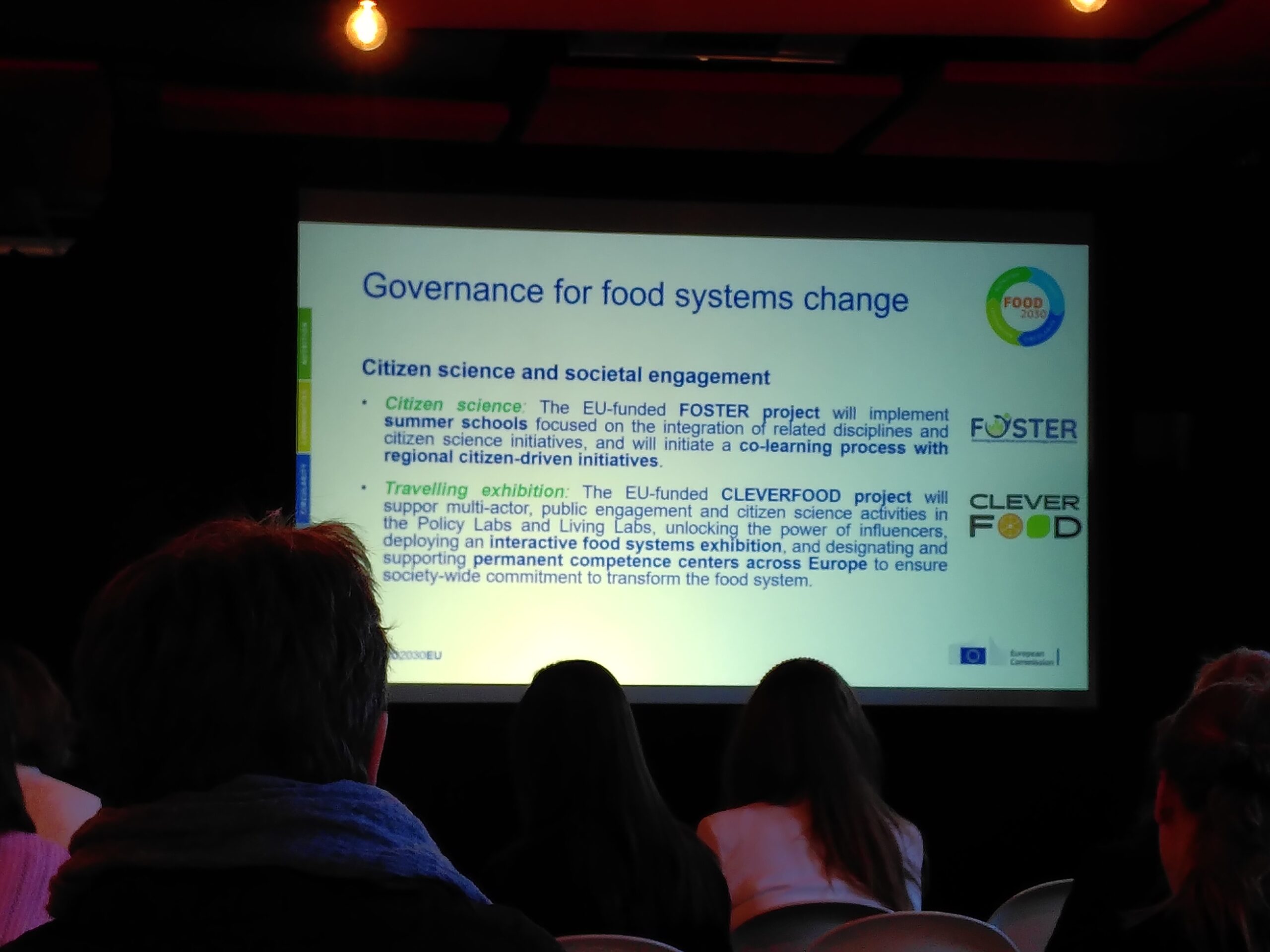
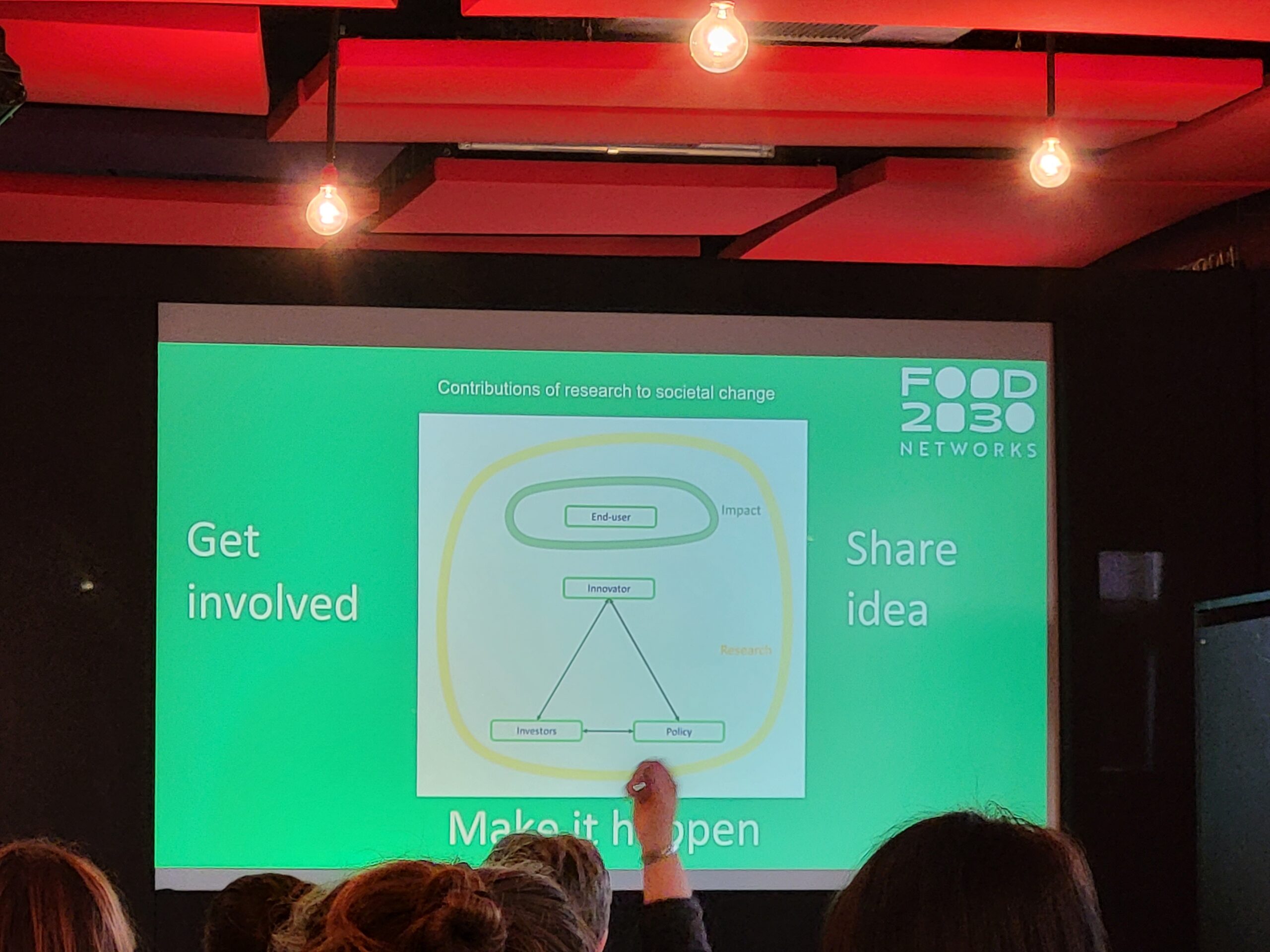
The first day’s session on “Innovation, Data, Digital Tools, and Sustainability Assessment” brought to light three challenges. First, there is a need for purposeful data sharing rather than sharing for the sake of sharing without knowing who will use it. In publicly available data sets , there can be a lack of linkages between them, thus cutting off the relations to the bigger picture. This may also be related to the fact that many existing databases are either unknown or are not user-friendly enough to be used in practice. Participants further raised that building up a systemic and long-lasting data infrastructure is extremely difficult to realize within in research and innovation projects that are limited in time, as it requires more long term investment of resources.
Additionally, the connection between data use and discrimination was mentioned. Certain actors such as smallholder farmers may be excluded from contributing and accessing data due to lacking technical knowledge thus making certain actors invisible in databases.
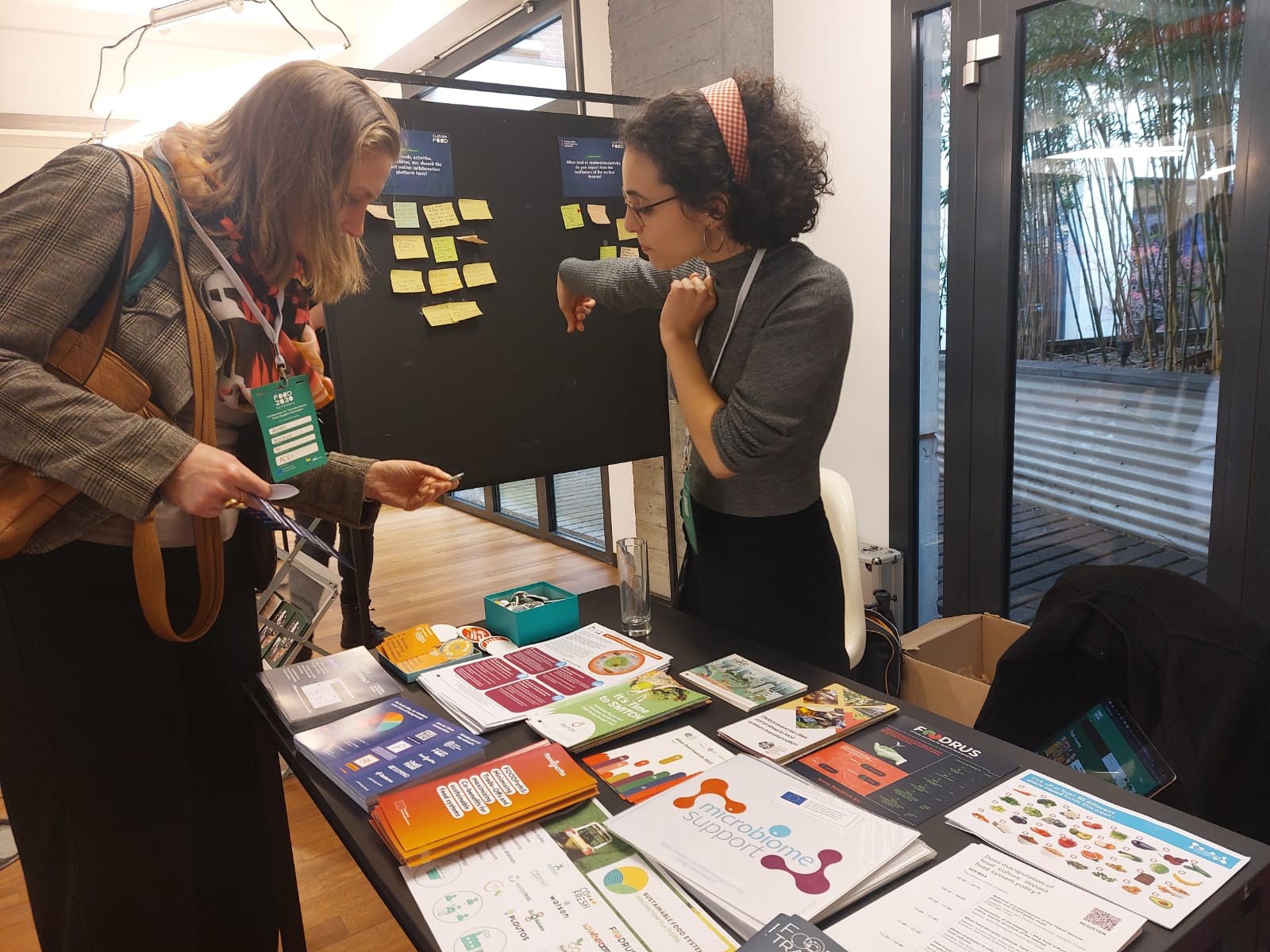
Getting to know other initiatives at the info table
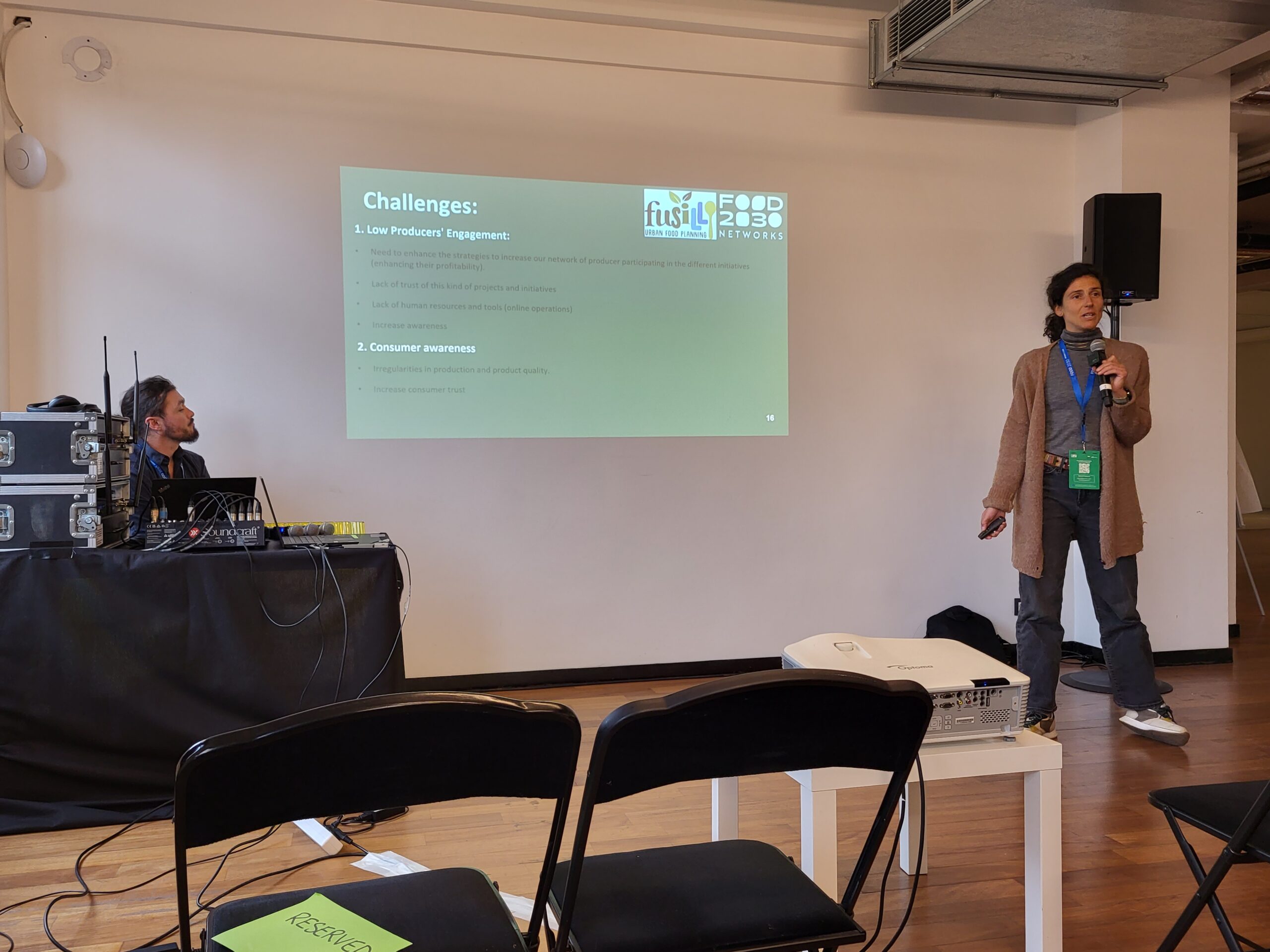
FUSILLI Coordinator Julia Pinedo Gil speaking at a session explaining challenges faced by FUSILLI
The session themed “Developing Localized Food Systems and Short Food Supply Chains” emphasized the importance of trust in short food supply chains. Effective cooperation among projects with similar goals was deemed essential, while challenges related to the systemic discrimination against plant-based foods and the inclusion of all stakeholders in discussions were acknowledged.
Another session explored “Barriers and Lock-ins for Transformative Innovation – and How to Overcome Them.” Especially in FUSILLI, we speak of the ‘transformation of the food system’, and this session provided food for thought on challenges to this process. Participatory approaches are well appreciated, however practice shows that they are likely to produce results that are incremental and rather reinforce the status quo. Yet, do incremental innovations delay progress to more systemic innovations that lead to fundamental change, or can the sum of many small incremental innovations build up to a larger systemic innovation? Food as an overarching topic, whether within the urban and rural development sectors, or between agriculture, environmental, and health departments in the city, needs to be harmonized across the individual development agendas for their members to successfully collaborate in an interdisciplinary way.
Yet, do incremental innovations delay progress to more systemic innovations that lead to fundamental change, or can the sum of many small incremental innovations build up to a larger systemic innovation?
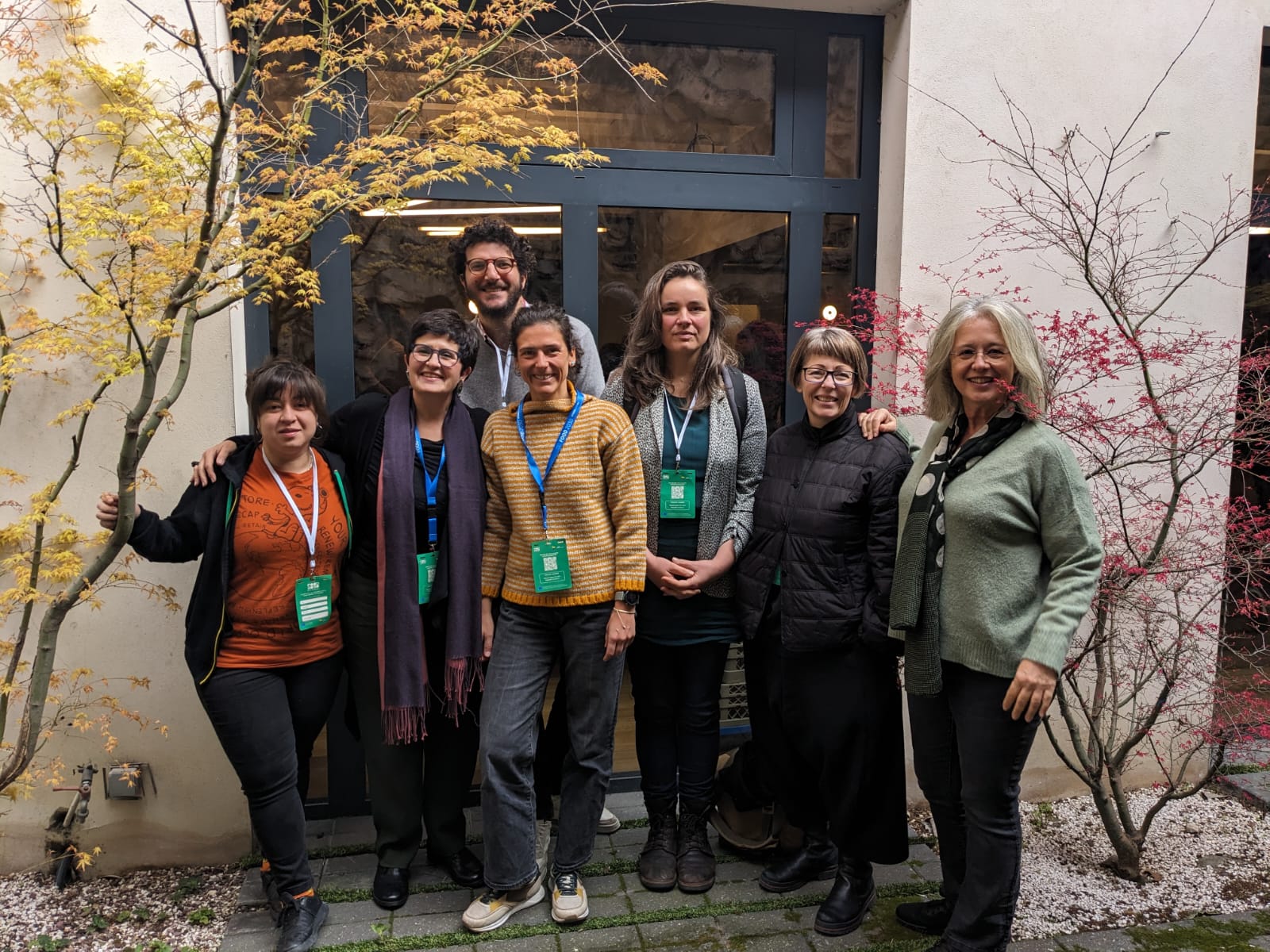
The FUSILLI team at the FOOD2030 Networks Conference. From left to right: Oya Tabanoglu, Patricia Hernandez, Diego Fallah, Julia Pinedo Gil, Nina Moeller, Danielle Wilde, Elisabetta Luzzi (Lucia Hörner not in picture).
From FUSILLI’s own experience, our coordinator Julia Pinedo Gil also highlighted several problems faced in ‘localizing’ the food systems in our Living Labs. Producer engagement can be low, potentially because of lacking incentives, and lack of consumer awareness. On the governance side, there are hurdles in municipal commitment as well as structural legal barriers. As there is often no designated food department in municipalities despite it being touched upon in many different departments, they risk not being aligned and being driven by different goals. In Rome, for example, the development of a specific food department was fostered by mass mobilization from civic organizations, a good example of how bottoms up change can happen.
To conclude, the discussion sessions centred on recognizing the true value and impact of innovations beyond their technological aspects. Challenges such as asymmetric information between investors and innovators and the need for larger guarantees for systemic innovation funding were addressed. Further reflections raised questions about value creation, the importance of multilevel governance, and the role of public financing in supporting social innovations.
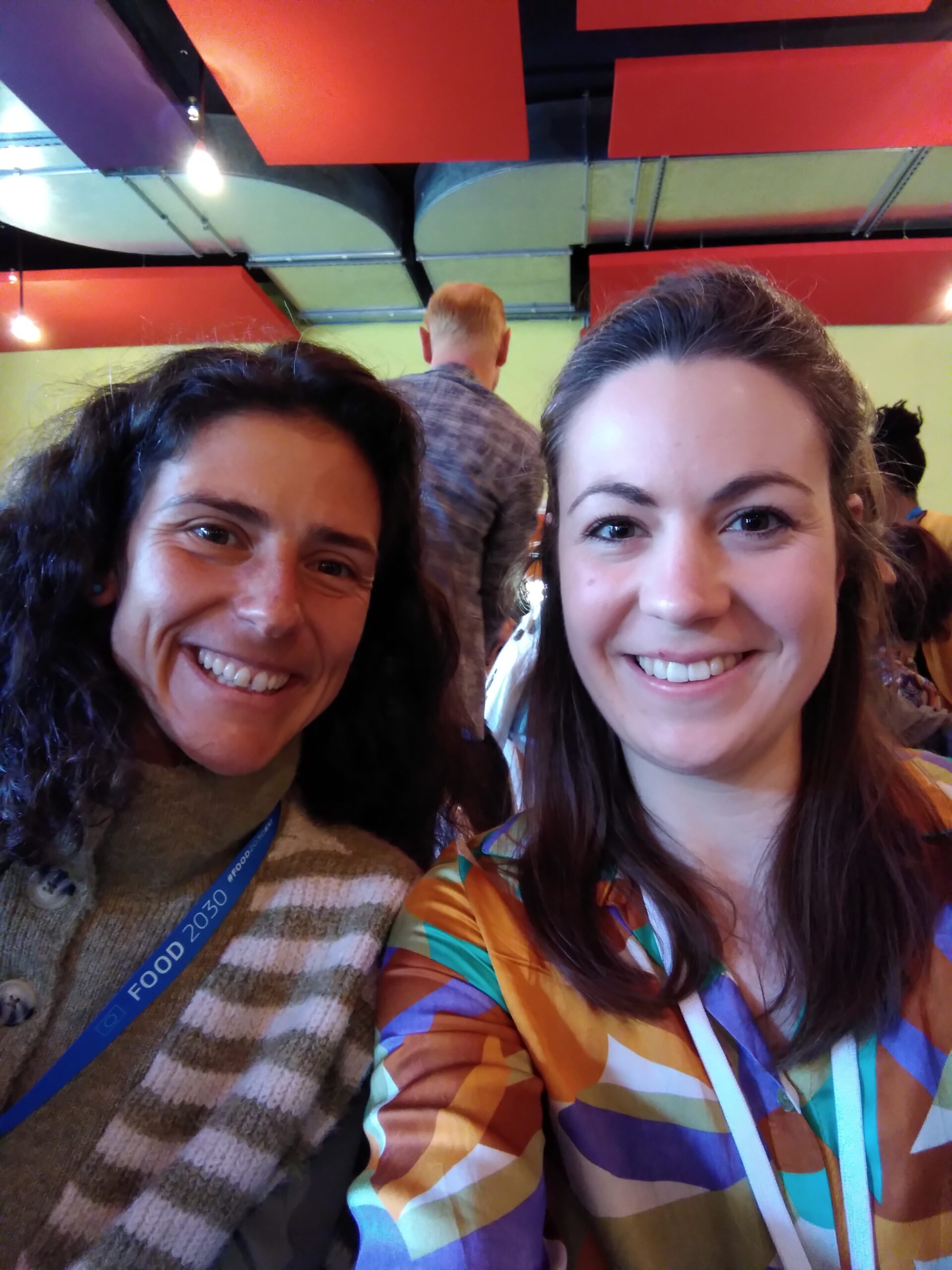
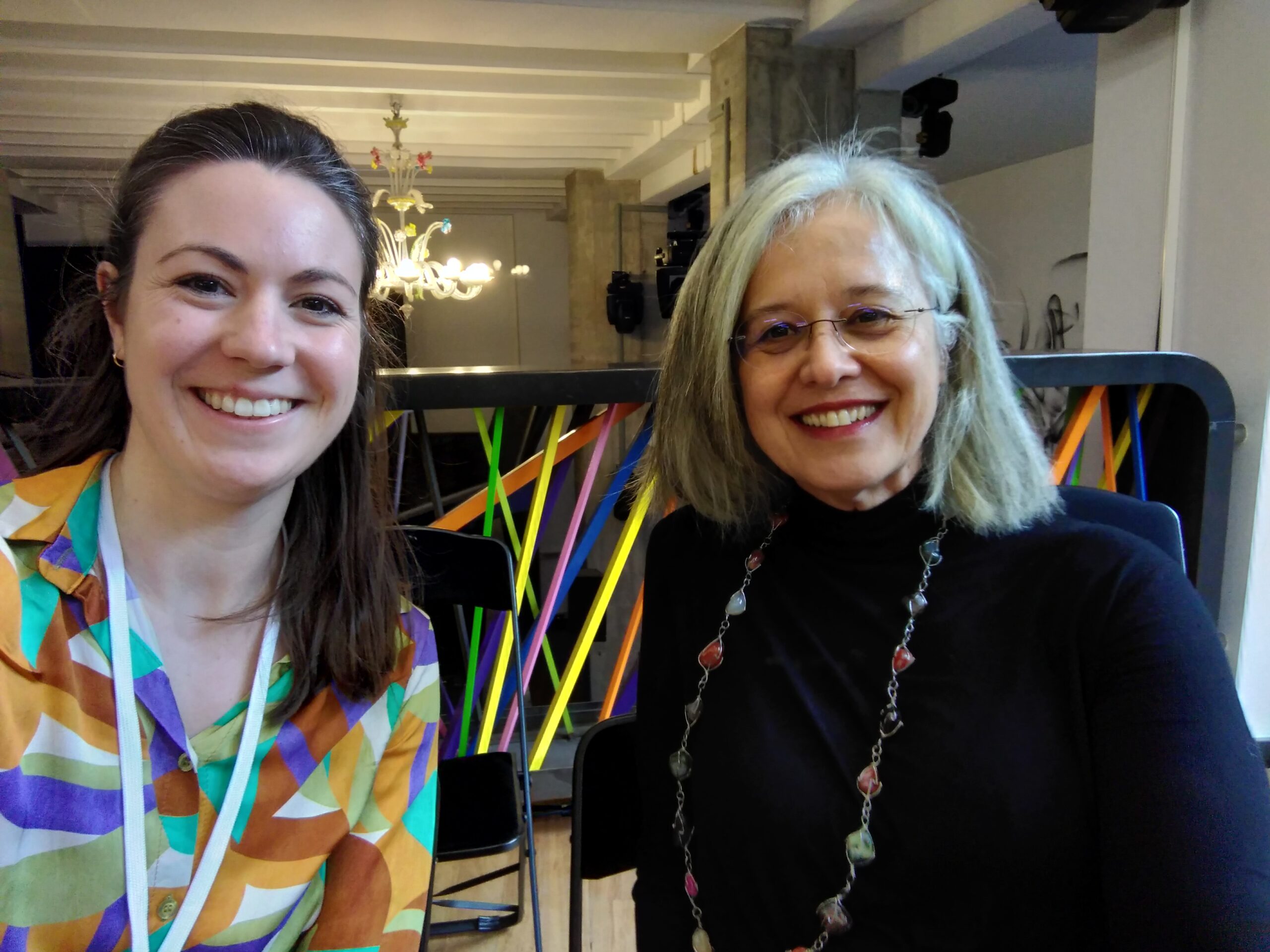
Connecting with FUSILLI colleagues. Lucia pictured with Julia (left) and Elisabetta (right)
Although large events with chances of networking like the Food2030 Networks Conference are prevalent, the challenge of limited resources allocated for exchange and networking remains. Despite the importance of collaboration for fostering innovation and more harmonized data use, there is often a lack of available resources for this means, arguably because their added value is difficult to quantify. The session on day 1 also underscored the importance of overcoming challenges related to collaboration formats and whether they allow for profound exchange as well as follow-up mechanisms.
To end on this point, central takeaways from the conference for us from FUSILLI are the significance of personal connections, and interdisciplinary and transdisciplinary discussions despite the uncertainty on the concrete personal gains of “networking”. There is a need to communicate more about food utopias, and the interconnectedness of various crises through addressing food in its broader systemic context. Moreover, the importance of considering the impact of research and collaboration, overcoming resource limitations especially for organizational and social innovations were underscored. Finally, the conference also emphasized the necessity of moving beyond incremental innovations and addressing challenges related to data harmonization and institutional collaboration within public institutions.
Author: Lucia Hörner, Exploitation Project Manager for FUSILLI, Steinbeis Europa Zentrum
